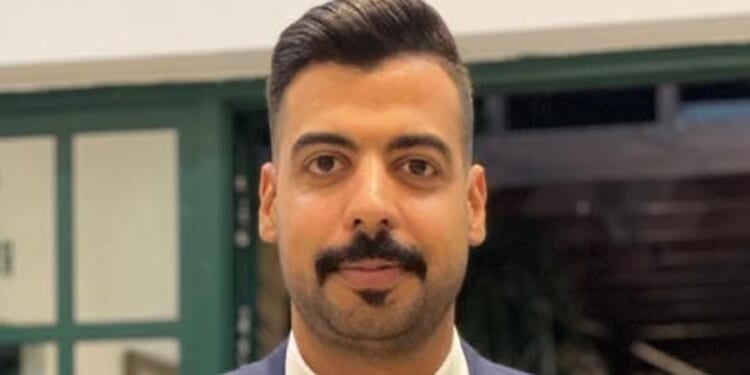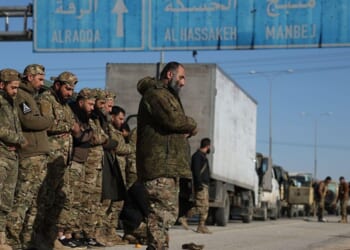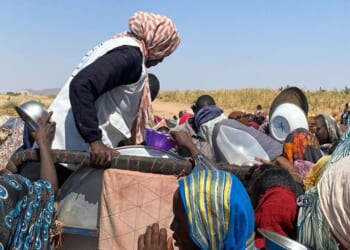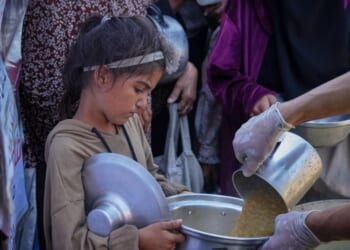DESPITE the ceasefire, people in Gaza still face challenges in getting aid and shelter, a spokesman for a Palestinian NGO has said.
“The number of trucks that enter daily is not enough. The flow of [medicine] is not enough. We talk about all the people in need. We talk about the people that have lost everything. We talk about people that need everything to restore their dignity, to restore their lives, to restore the minimum requirements to be a human,” the director of development and strategic partnership for the Agricultural Development Association — PARC, Hani Al Ramlawi, said.
Other restricted items include agricultural materials that support farmers to restore their livelihood capacities. He said that the Association’s work includes providing emergency response to affected communities, and rehabilitating the agricultural land as well as working with farmers to restore their production.
“We try to utilise from what exists in the local market, and we try to provide the small scale farmers with the needed agricultural input, seeds, seedlings, irrigation network, to rehabilitate their farms to start to plant and restore that the capability of their lands to produce and to harvest the agricultural crops.”
The biggest obstacle is access to material, Mr Ramlawi said. “Without materials, we can’t progress with rehabilitation and reconstruction. So we hope that the UK Government push in terms of enhancing the flow of materials to entering the Gaza Strip.”
The organisation, previously named the Palestinian Agricultural Relief Society, was established more than 43 years ago and focuses on rural development and humanitarian work for the affected communities in Palestine.
It has been a strategic partner of Christian Aid for more than 20 years; their joint intervention includes providing immediate response and food-security support. “The most important thing is we work with them to empower people to be able to organise and to provide the services to their displaced communities. This is improving their environment and infrastructure, and to apply much more sustainable intervention which addresses the real needs for the community,” Mr Ramlawi said.
“We work with Christian Aid in delivering messages for those affected communities to the world, and to document the violation that happens inside Gaza.”
He said that the Association had three top priorities. The first was “providing immediate and emergency response supplies, such as food, shelter and protection to the affected and displaced people”.
The second was entering the early recovery phase, which Mr Ramlawi describes as rehabilitating and reconstructing agricultural land to restore its productive capacity and strengthen the food system, to provide a more sustainable source of water, sanitation, and hygiene services, and to support the livelihoods of young people and women by providing income opportunities that help to restore their economic stability and capacity.
The third was to “raise the voice for the affected population, the affected community on the ground”, and to share “what the people need”.
“The main message we want to deliver after the ceasefire, after two years during which people suffered every single minute, is to start working together, to collaborate, and to support people in restoring their dignity. Palestinian and Gazan people need the support from UK people, from the UK Government, because now is time to work. . . to make changes for this country, to rebuild the country,” he said.
In 2024, Mr Ramlawi left Gaza for Egypt. He said that losing his homeland was “the most difficult feeling”. He has family members still living in Gaza but said that communicating with them was difficult: “We still hope that we will meet together soon.
“Simply, we miss our normal lives. In Gaza, there are teachers, doctors, and engineers who have dreams, passions, and careers. We miss all the parts of daily life we were used to. We miss our families, our friends, the roads, the places. We miss everything.”
Mr Ramlawi said that reports on rebuilding Gaza estimated that it could take 20 to 30 years, but he hoped that, with support from the UK and other countries, this timeframe could be reduced — “to help the people get back to their normal lives”.
“Please do not see the Gazan people as martyrs. Inside Gaza, there are doctors, there are teachers, the youth have passion, have dreams and futures; so we need to work together to restore all of these aspects for their lives.”
Leader comment, page 12

















